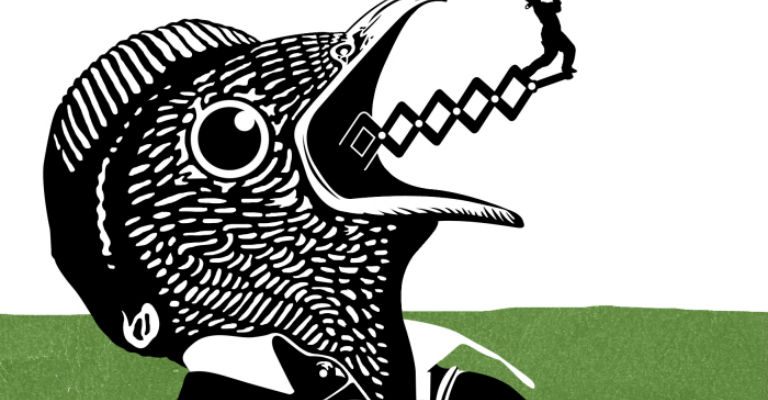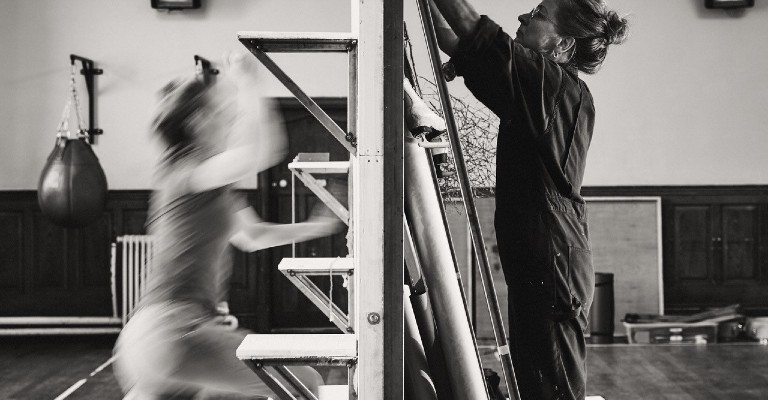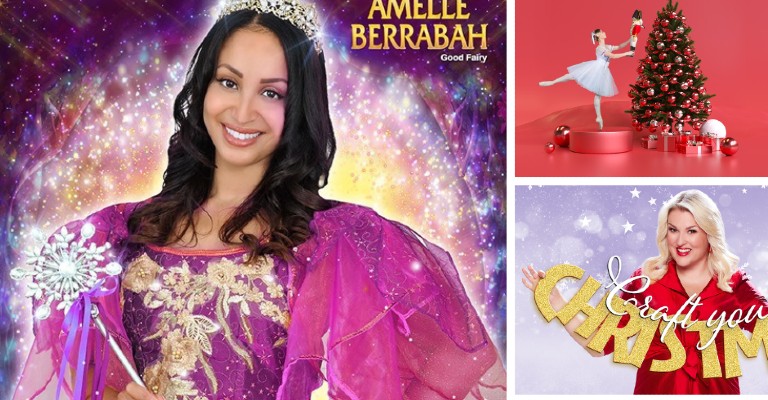REVIEW: Lord of the Flies @ The People’s Theatre, Newcastle
Posted on March 8th 2017 by Whats on Northeast

Words: James Inkster for Cuckoo Review
In this new production of William Golding’s Lord Of The Flies, the audience sits on the stage. This point, first and foremost, has to be addressed. Usually, we are comfortably distant, sat as blameless spectators who sip at our drinks, watching the drama unfold. But Nigel Williams’ adaptation, under Reg White’s direction, removes that cushioning divide and places you right at the heart of the matter.
And it is a dark matter.
Based on William Golding’s legendary novel, the play centres around a group of civilised, British children and their descent into barbarism. Stranded on a desert island, the power struggle between Ralph and Jack – in their effort to establish leadership, laws, and to ensure survival – is an unsettling microcosm for real world affairs. Jack’s focus on hunting, dancing, and tribal facepaint displays an aggressive prevalence for hedonism, violence, and didactic ambition. Meanwhile, Ralph’s emphasis on building shelter, democracy via the totemic “Conch”, and his aiding of the short-sighted and asthmatic Piggy, mark his left-wing approach to governance: “this island belongs to all of us.” Yet, whether left-wing or right, they all ultimately succumb to the darker side of the human soul: pigs are hunted and killed; people are hunted, and people are killed.
As the sacrificial murders are performed by a cast of mostly female children – literally right before your eyes – you can watch the whole of the audience being slowly, painfully affected. Whilst the novel provides an individually reflective experience, the play was one of collective cross-inspection. For, as the cast stamp their feet and spears, bathed in blood red light, the stage shakes until, at last, Simon remarks that “The beast is Us.” At that chilling moment, the audience, sat in-the-round on three sides, anxiously catch each other’s eyes and think – is this true?
Sitting so close to the action reveals how but a flimsy veil hangs between what we present and what we are. There is the illusion and there is reality, just underneath. On this point, a powerful effect was engendered by the use of shadows: a stagelight sent enlarged silhouettes onto the back wall. At several key moments, the perfect outline of a woman, with a spear, frayed clothes, standing tall and proud, was cast there – and it was like looking at a primordial vision of humankind. It was us as we were and potentially could be. It was striking.
Well-acted, well performed and well written, this production provoked questions about our ethical norms. The characters argue that “right is right”, just as the ethicist G.E Moore said “good is good, and that is all.” Yet, when the moral decay sets in, one wonders how much is innate, how much is societal, parental or God-given? For when, like Prometheus, Jack steals the fire, he becomes the God, performing at one point a “baptism” of blood. Now, he sets what is good, what is right, and this was truly unsettling.
During the transition of acts the production made use of a repeated song, the lyrics to which are essentially “why can’t we see?” This is a recurring motif, with the program adorned with broken glasses, and Piggy complaining that he cannot see, but it is also a significant metaphor for our broken, or damaged perspectives. Perhaps the biggest compliment owed to the cast and production team is that, thanks to this play, by 9.30 that night, I think the audience did see – and will remember this performance and its wider implications as a result.
FollowUs
WhatsOn Facebook
Unable to display Facebook posts.
Show error
Type: OAuthException
Code: 12
Please refer to our Error Message Reference.

